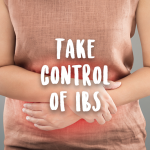If you are living with PCOS (polycystic ovary syndrome) then you know it's not easy to deal with.
PCOS, or polycystic ovary syndrome, is a problem that affects women during their childbearing years. It causes irregular periods and makes the body produce too much of a male hormone that causes a lot of other problems.
Doctors usually suspect that a patient has PCOS when two or more of the following symptoms appear:
- Periods that last a long time or happen infrequently or irregularly.
- Signs of too much androgen being produced. This can include heavy facial and body hair, bad acne, and even male pattern baldness.
- Enlarged ovaries.
Nobody knows what causes PCOS, but there are a few possibilities. These include too much insulin and low-grade inflammation. Genetics may also play a role.
Women who have PCOS face numerous health risks like:
- Infertility
- Gestational diabetes
- High blood pressure during pregnancy
- Severe liver inflammation
- Type 2 diabetes
- Sleep apnea
- Depression
- Metabolic syndrome
Obesity and PCOS

Obesity is also linked to PCOS and brings its own health risks The weight gain that is often seen in women with PCOS is triggered by their high levels of male hormones.
Women with PCOS tend to gain weight in their abdomen, in much the same way that men generally do.
PCOS makes it harder for the body to metabolize sugar and starch into energy. Instead, it builds up in the bloodstream and turns to fat.
There is some research showing that the more weight women with PCOS gain, the worse their symptoms become. This creates a cycle that is hard to break.
The good news is that studies have shown that women with PCOS who lose just 5% of their body weight show a big improvement in their symptoms.
Their insulin sensitivity improves and their periods return to normal.
Though losing weight is always hard, it is even harder when you have PCOS.
Research has shown that the best diet for women with PCOS is one that focuses on whole foods. Eat vegetables and fruit, plant-based protein and lean meats.
Dos and Don’ts for Eating with PCOS
Do Choose:

- Fresh fruit, especially berries
- Dark leafy grains
- Colorful vegetables eaten raw, steamed, boiled, broiled, roasted or grilled
- Frozen or canned fruit that has no added sugars
- Unsweetened applesauce
- Brown rice, oats, Ezekiel break
- Foods that are high in fiber, including oatmeal
- Beans and legumes
- Hummus
- Peanut butter
- Nuts and seeds
- Eggs
- Wild-caught fish
- Pasture-raised, grass-fed chicken
- Pasture-raised, grass-fed lean beef
- Olive oil
- Avocado
- Dark chocolate
- Green tea
Don't Eat (avoid):
- Processed foods
- Foods that have added sugars, including refined sugar, cane syrup, corn syrup, high fructose corn syrup and natural sugars in any form
- Be cautious about foods that have hidden sugars, including fruit in syrup, applesauce that has been sweetened, and sugary cereals
- Artificial sugar
- Dairies, including milk, cream and cheese
- Deli meats
- Foods that are high in Omega-6 essential fatty acids, trans fats and hydrogenated oils
- Starchy vegetables including corn, peas and potatoes
- Refined grains and flour such as pasta, white bread, and white rice
- Soda and juice
- Sweets such as cakes, ice cream and cookies
- High-fat snacks including chips
I don't have PCOS but these are almost identical to my own list of foods to eat and avoid. Once you start eating this way you will begin to feel better.
I also recommend starting with an all natural gentle detox to balance your hormones and set you up for long-term success!
Here's the gentle 3-day detox I use.
Yours in health and happiness,
Danette
P.S. Please help me get the word out about PCOS by sharing this article and I welcome your comments below. Do you know someone who has been struggling with PCOS?






